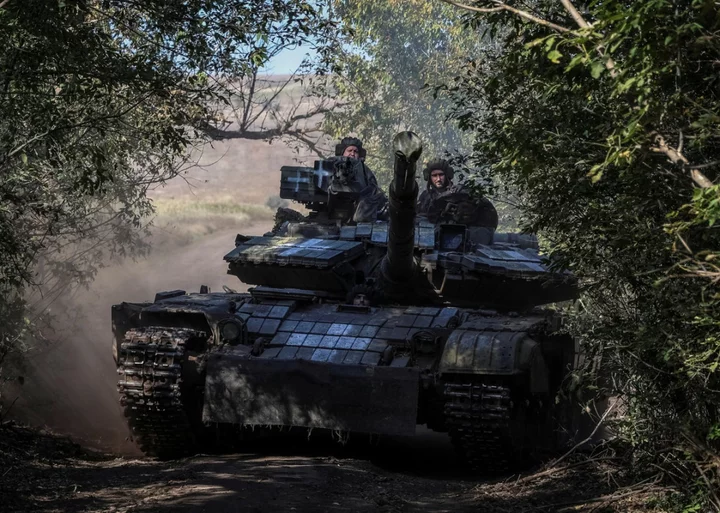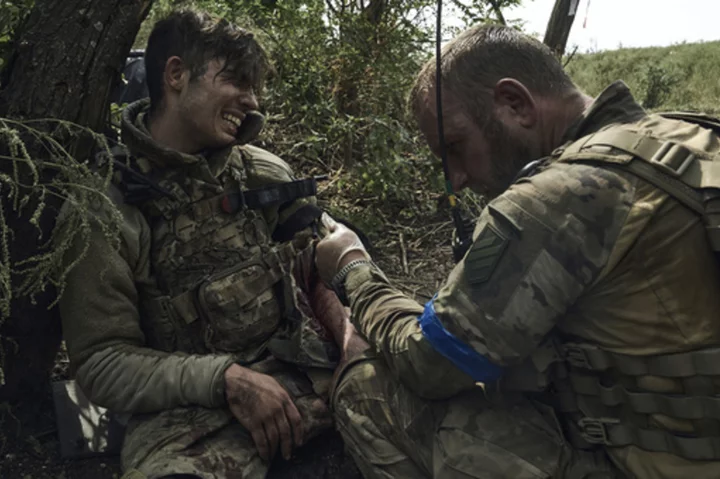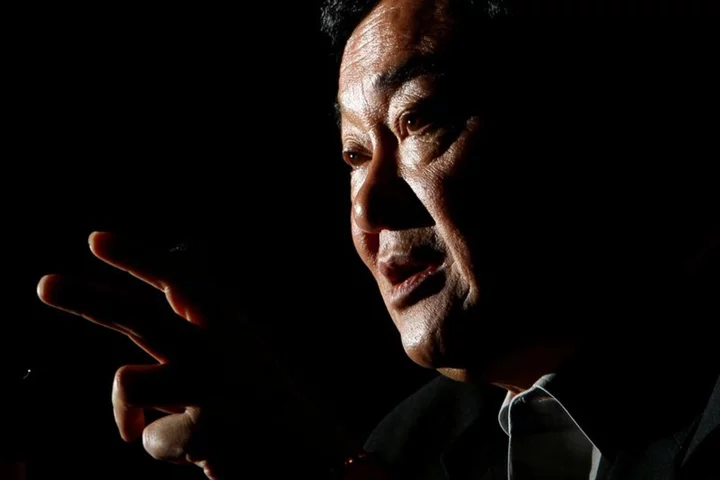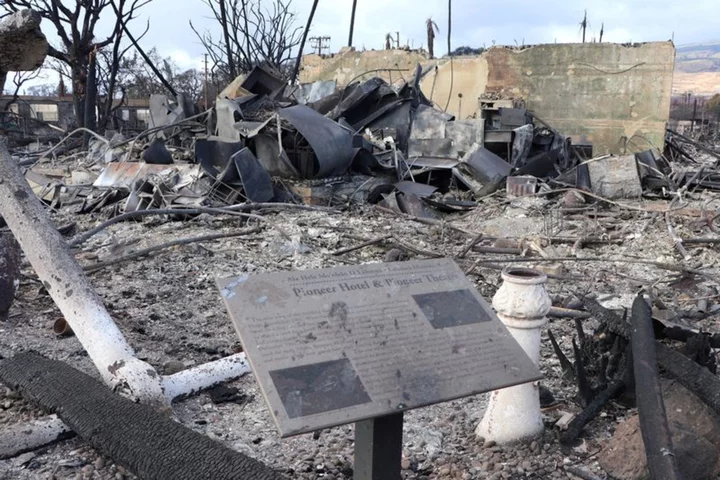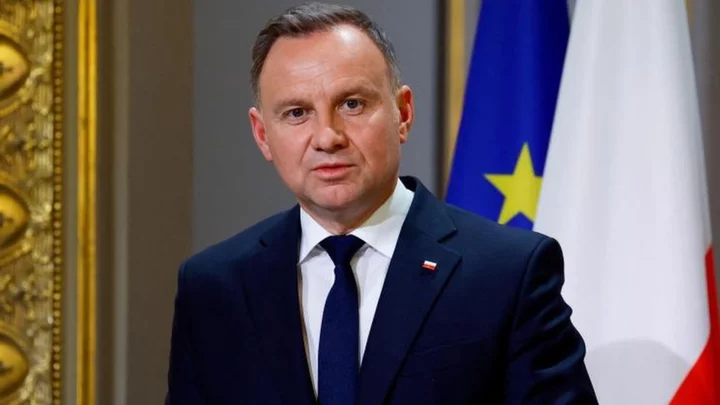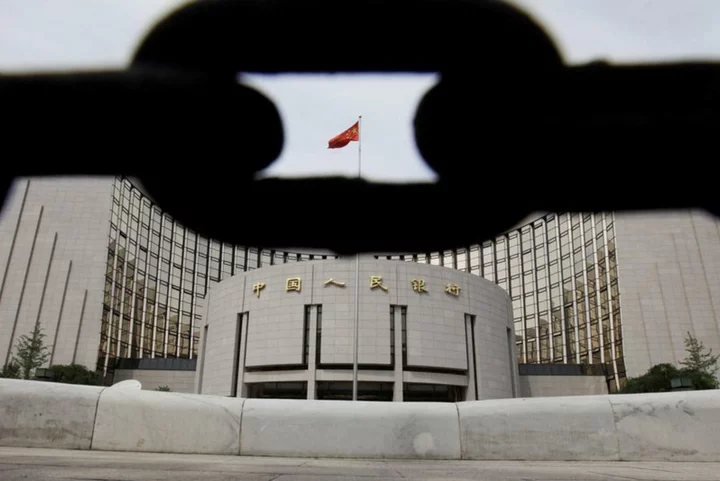Shortly before hard-right Republicans made history by ousting Kevin McCarthy, the speaker of the House of Representatives, Ukraine’s western allies, including the UK, the European Union and Nato, received a phone call from President Joe Biden.
Congress may be frozen but support for Ukraine is “ongoing”, Mr Biden told those on the line.
It was intended as a message of reassurance but, devoid of any detail, it spoke to an impending issue largely outside of the president’s control.
Hardline Republicans in the US, the powerhoue of the West, are threatening to demonstratively derail US aid to Ukraine for the first time since last February.
Mr McCarthy was removed as head of the lower chamber of the United States Congress, on Tuesday evening following a dispute over how best to allocate government funds for the next fiscal year. The campaign was spearheaded by a group of eight Republicans – a number of them supporters of Donald Trump – angry the domestic issue of securing the border was not being prioritised over supporting Ukraine.
The move has plunged the House into chaos and frozen its ability to allocate money completely, including to Ukraine. Until a new speaker is elected and a new financing agreement is approved for next year – a temporary funding bill takes them to 17 November – those reliant on these funds are living on borrowed time.
The US is currently operating a policy of taking equipment from its military stocks and sending them straight to Ukraine under the agreed “President Drawdown Authority”. This circumvents the need to buy new equipment from defence companies, which would inevitably delay military aid to a nation that needs it immediately.
Congress last year raised the ceiling on the amount the president can take from these military stockpiles from $100 million (£82.4 million) to $14.5 billion (£11.9 billion) to ensure continued support for Ukraine. The Pentagon subsequently sought to get the most out of its funds.
But when the fiscal year ended on 1 October without an agreement in the House over how to finance next year, that drawdown authority went back to $100m.
Given the burn rate per month for Ukraine of military aid, including artillery and heavier equipment lost in battle, is about $2.5bn, the lowered ceiling of $100m is “basically nothing”, according to Max Bergmann, director of the Europe, Russia and Asia programme at the Center for Strategic and International Studies, a Washington-based think tank.
US aid to Ukraine has nearly three months worth of funds (up to $6 billion) to keep feeding its military needs but after that, without a resolution in the House, the stockpiles will run dry.
The ousting of Mr McCarthy has made hopes of a resolution evermore difficult. Without a speaker, no decisions can be made.
“There is no way to sugarcoat how bad it would be if US security assistance [to Ukraine] stops,” Mr Bergmann said. “A lot of Ukrainians will die and their ability to fight on will be severely compromised.”
Russian strikes on critical infrastructure across Ukraine has already begun ramping up, making Kyiv’s need for more air defence systems to protect its civilians more acute. If US funding slows or stops this task beomes far more difficult.
Along the frontline, a winter Ukrainian offensive, or the continuation of the current summer counteroffensive, will become exponentially harder the more foreign military aid dwindles.
Ukraine’s Armed Forces have become used to attritional warfare, which involves bombing enemy positions before advancing in small groups, retaking small chunks of territory in the process.
This requires a continual supply of artillery and shells. Without this, not only are advances more difficult but the threat of a Russian counterattack is heightened.
There is also the geopolitical implication of reduced support: it would prove correct the Russian belief that their deep military and personnel resources can outlast Western resolve.
“Such a lapse in support will make [Russian President Vladimir] Putin believe that he can wait us out,” US national security council spokesman, John Kirby, said on Tuesday, describing this issue as “just as critical” as the impact on the frontline.
European aid will go some way to slowing a potential dilution of US support but they have their own long-term problems regarding arming Ukraine. “The continent collectively has underinvested in defence,” Mr Bergmann said. “There is not as much in the warehouses; there is less ammunition and less mortar rounds.”
The House of Representatives, ruled by a razor-thin Republican majority, will now have to vote for a new speaker.
Representative Steve Scalise, the number two House Republican, has long been favoured to take over as speaker and enjoys wide support from across his party, but he is currently undergoing chemotherapy for blood cancer.
The House, then, must elect a new speaker from a pool of options that are either in the middle of treatment or will struggle to earn enough support to secure any form of sustainable leadership in the House.
While they debate and jostle, Ukraine will get closer to losing its most significant military supporter.
Read MoreKevin McCarthy ousted as US House speaker by Trump supporters – everything you need to know
White House says ‘time not our friend’ on Ukraine funding as all eyes on next House speaker
Ukraine-Russia war – live: Kyiv launches 31 drones on Putin’s territory as offensive gains momentum

